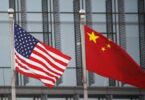SHITOV Andrey
Over the next week, Russia expects from the United States and NATO to provide detailed, well-reasoned written responses to their December proposals on security guarantees, which were discussed in recent days at the Russian-American talks in Geneva, as well as during multilateral consultations at the sites of the Russia-NATO Council (RNC) in Brussels and the OSCE Permanent Council in Vienna. Then the heads of the Russian Foreign Ministry and Defense Ministry Sergei Lavrov and Sergei Shoigu will have to summarize and report the results obtained to the country’s President Vladimir Putin, on whose direct instructions this negotiation process was launched. After that, the Russian side will decide whether it makes sense to continue discussions and how to generally react to the position of the collective West.
So far, this position does not inspire optimism in Moscow. In an in-depth interview on the topic Thursday night, Lavrov said the talks reflected “serious confrontation” on the world stage and an attempt by the West to assert its unquestioning dominance. The kindest word that our minister found about partners boiled down to the fact that they stated their positions “generally calmly, in a business-like manner”; in his opinion, this “makes it possible to count on the prospect of understanding” by them of what was presented to them.
Geneva start:
Earlier in the day, Kremlin spokesman Dmitry Peskov called the negotiations “unsuccessful”, and the new bill put forward in the US Congress, allowing the introduction of personal sanctions against the top Russian leadership, was even equated with an “initiative to sever relations” between the two countries. … Lavrov, for his part, characterized such pre-announced restrictions as “a kind of nervous breakdown.”
Calculated hysteria?
Of course, the degree of anti-Russian hysteria overseas has recently gone off scale, and among Russophobic lawmakers there are outright “thugs” like the main co-author of the same initiative, Democratic Senator Robert Menendez. But, first of all, even on their part, attempts to harm Russia at any cost, reaching the point of absurdity, look like a manifestation of not strength, but weakness, since they do not bring the results they want and generally resemble the Russian proverb “to spite my mother, I will freeze my ears.”
And secondly, I personally and in such fits of rage still fancies an element of cold calculation. Indeed, the very same American negotiators, whom Lavrov praised for being calm and efficient, constantly threaten Russia with some unheard of “hellish” or “crippling” sanctions. And US Secretary of State Anthony Blinken, in his own television interview on Thursday, again interspersed calls for “choosing the path of diplomacy and dialogue” addressed to Russia with threats against it.
In our country, this approach is reflected in the well-known proverb about the carrot and stick. But Americans also have their own classics. For example, one of their cult heroes, the mafia Don Vito Corleone, “considered the use of threats the greatest stupidity, and the outburst of anger, not thought out in advance, the most dangerous intemperance.” It is unlikely that Blinken did not read and did not see The Godfather.
In fact, American lawmakers are actually quite able to control themselves. The same Democratic senators, colleagues of Menendez, on Thursday safely out-vote the Republican bill on sanctions against Nord Stream 2. This was done in pursuance of direct instructions from the administration of President Joe Biden – the political science portal Axios obtained and published a dictation from the US State Department in this regard. It opens with a warning that the bill does not so much “punish Russia” as “undermine the unity of our allies” (read – the US-Germany bond), and ends with a reminder that it “makes Europe vulnerable to Russian energy exploitation in the middle of winter.”
“This is how the winners behave”
In general, I think that Russia, almost for the first time in modern history, made its new proposals to the West on European security and conducted negotiations and consultations with it on this score from a position of strength. In essence, we are talking about forcing the United States and NATO to peace.
And this is not only my impression. The head of EU diplomacy, Josep Borrell, commenting in an interview with the newspaper Die Welt on the drafts of new documents on security guarantees presented by Russia, noted that “only the winners behave this way: they present their conditions.”
Borrell, these conditions seem unacceptable, he is indignant about this. It is just right for him to sympathize: he was not invited to the negotiating table at all. And Russia at this table conducted a dialogue on equal terms about its new initiatives not only in a bilateral format with the United States, but also in a multilateral format – with NATO and the OSCE.
“Place at the table”
Incidentally, US Permanent Representative to the OSCE, Michael Carpenter, retrospectively explained why the Americans needed the last site at all. “Ukraine participates in the work of the OSCE, and therefore we value this format: here they have a place at the table, and they can participate in the discussion of all proposals on an equal basis with all those present,” he told reporters.
Well, the logic is clear. Otherwise, one of Washington’s main promises to Kiev – “not a word about Ukraine without Ukraine” – looks absolutely ridiculous. As Russian Deputy Foreign Minister Alexander Grushko told reporters, at a meeting of the Russia-NATO Council in Brussels, members of the alliance “for an hour and a half out of four allotted” spoke specifically about Ukraine – in her absence. And they listened to the Russian position, according to which, according to the diplomat, “the threat to Ukraine is Ukraine itself and no one else.”
Yet another episode has clearly shown how the Americans feel about the participation of their Kiev satellites in the negotiation process. The head of the US delegation, Wendy Sherman, at her own briefing after the same meeting of the RNC, was asked to comment on the call of Ukrainian President Volodymyr Zelensky for a new Normandy Four summit, at which he is allegedly ready to “substantively negotiate an end to the conflict” in Donbass. “I have not seen President Zelenskiy’s proposal for a summit,” Sherman said. It turns out that she spent a whole hour and a half discussing with her colleagues from Russia and NATO about Ukraine, but at the same time she was not aware of an initiative that was important for Kiev, put forward literally the day before.
Foundation stone
With regard to the OSCE, it should also be added that Russia has its own reasons to value this platform. Lavrov stressed in his interview that although “NATO and the Americans, indeed, categorically reject our right to seek non-expansion of NATO,” our approaches are based “not on NATO documents (we have nothing to do with them, as they do with us), but documents adopted at the highest level in the OSCE “.
In particular, according to the minister, this refers to “the 1999 Istanbul summit, where the freedom of choice of alliances [was] directly conditioned by the need to ensure the indivisibility of security, so that no one would take measures in their own interests to the detriment of the security of any other state.”
Now it is the cornerstone of the Russian negotiating position, which was discussed in detail at today’s big press conference by Lavrov at the Foreign Ministry.
No ultimatums
As for the reliance of this position on strength, I asked Peskov to confirm my impression, but he did not agree with me. As I understand it, first of all, because he does not consider our tone to be an ultimatum.
“We are not negotiating from a position of strength; the president said that there is no and cannot be room for any ultimatums,” the Kremlin spokesman said. “It’s just that the situation has reached such a critical point in terms of pan-European security and in terms of the national interests of our country, which are an integral part of Europe and the architecture of European security, that we cannot, unfortunately, hesitate any further and we need to specifically respond to the concerns that we have voiced “, – he added.
For the Kremlin, of course, it is not news that in the United States itself, the ultimatum tone in dealing with the outside world has, in fact, become a habit. “In recent days, we have seen such a framing of the ongoing negotiations [on security guarantees] with such lively, aggressive statements by official Washington,” Peskov said. “This, of course, piques our interest. Although we understand why this is being done …” the carrot and stick I have already mentioned.
Gentlemen no longer take their word for it
In general, of course, I understand why in all the corridors of power in Russia they are more than skeptical about the chances that Moscow and Washington will be able to get along when discussing the very architecture of European security. But I would like to hope that there are still such chances.
First of all, I proceed from the fact that for our president, no matter how demonized in the West, a bad world is better than a good quarrel. In any case, he himself always emphasized this, as well as the willingness to negotiate and take into account the interests of the interlocutors. And now Lavrov at a press conference expressed confidence that “if there is goodwill and a willingness to compromise, then mutually acceptable solutions can always be found.”
In my opinion, US President Joe Biden should also be ready to compromise now, if only for internal political reasons. The popularity rating of the American leader in his country is very low and continues to deteriorate. He needs political successes like air – to shape his presidential legacy, if not a new electoral platform. First of all, this is precisely why, in my opinion, immediately after coming to power, he extended the Strategic Offensive Arms Treaty (START-3), and then withdrew American troops from Afghanistan, reaffirmed the inadmissibility of nuclear war, and agreed to the current dialogue on security guarantees with Russia.
But his political window of opportunity is narrow. As early as November of this year, the Republican opposition will almost certainly regain control over one or both chambers of the US Congress. After that, it will be possible to wait for the next tightening of the screws in relation to Russia – not out of principle, but in defiance of Biden and the Democrats. Therefore, Moscow needs to come to an agreement with Biden’s team, if it is to try to come to an agreement with it, without any delay.
Lavrov said that Russia had been harnessing for a long time, but is now waiting for an answer from “the driver on that cart.”
Therefore, we need legally binding documents: so that the potential successor of the current American leader does not outplay any declarative political obligations in the form of some kind of “gentlemen’s agreements.” In general, there is no more faith in Russia for any overseas gentlemen, and there never will be. In my opinion, both Moscow and Washington understand this.
Mature people’s hopes
Lavrov was asked in a TV interview if he had any hope of the success of negotiations with Washington and Brussels. The minister replied that “the hopes of young men are nourished,” and more mature people are accustomed to starting from reality and always working “on specific tasks.” He also joked that “a pessimist is a well-informed optimist.”
Nevertheless, the next day, at a press conference, the head of Russian diplomacy nevertheless confirmed that hope was the last to die. Having commended his past personal contacts with his American counterpart Blinken, he expressed the hope that the talks, which began in Geneva and Brussels, would be able to resume.
“But this will depend on the response of the United States – a specific written response to our proposals,” the Russian Foreign Minister stressed once again. The ball, as they say, is on the side of Washington.
Courtesy: (TASS)






